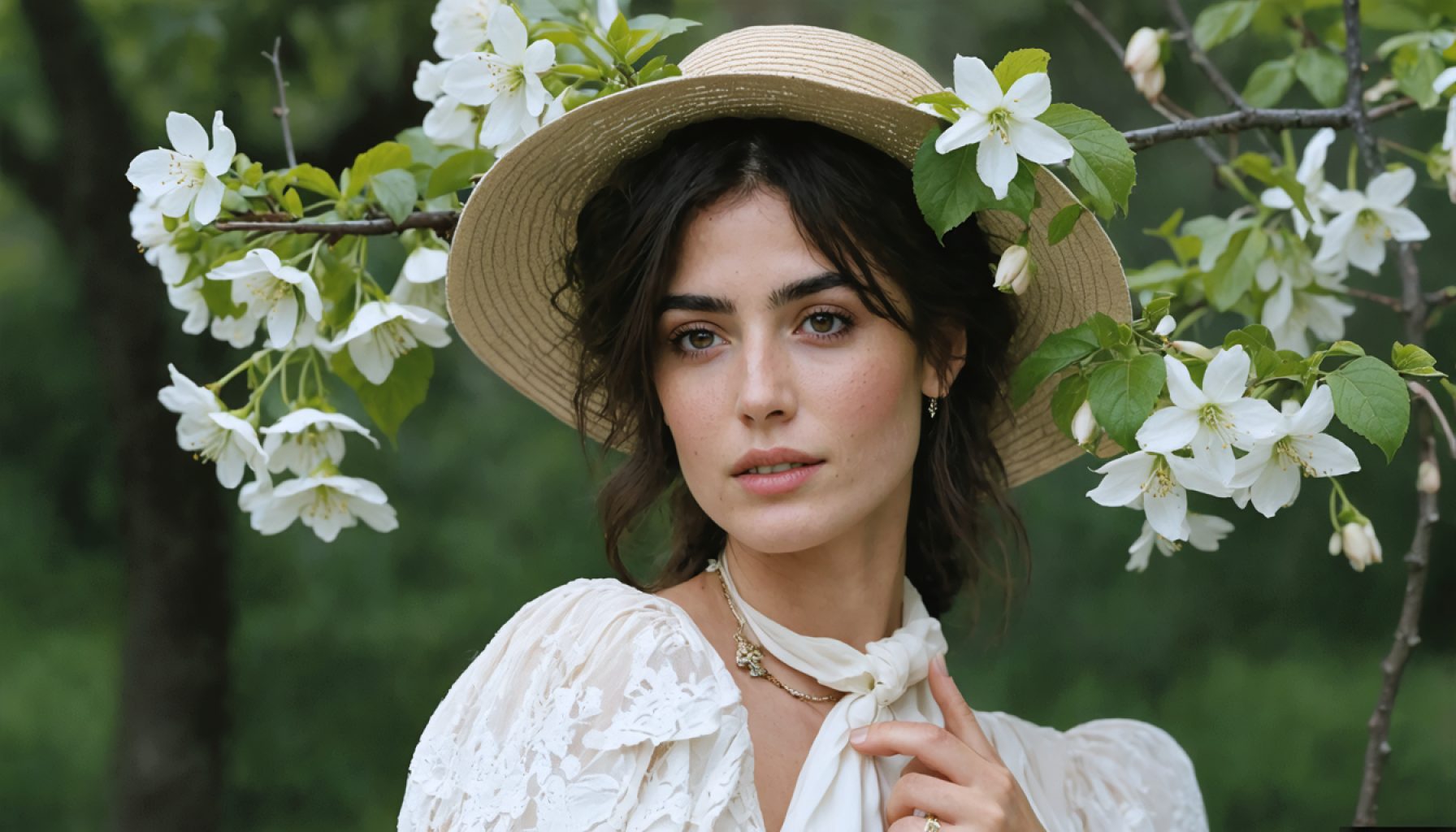- María Valverde transitions from acclaimed actress to director with her debut film, El Canto de Las Manos, a groundbreaking opera performance in sign language.
- The documentary follows three young deaf Venezuelans as they navigate their first opera performance, showcasing María’s dedication to diverse storytelling.
- At the Málaga Festival, María’s enthusiasm highlighted her commitment to innovative projects and artistic expression.
- María attended the 70th anniversary of the Queen Sofia Spanish Institute, emphasizing her influence among global changemakers.
- Her personal life flourishes alongside her professional growth, as María cherishes her role as a mother figure to Gustavo Dudamel’s son, Martín.
- Considering future projects, María expresses interest in reuniting with former co-star Mario Casas, focusing on meaningful storytelling.
- María Valverde embodies a journey of love, art, and growth, inspiring others to pursue their creative passions and nurture relationships for fulfillment.
María Valverde radiates a rare luminescence these days, both on and off the screen. Her odyssey in the world of storytelling has taken a riveting turn as she mounts the ladder from celebrated actress to inspired director. Her directorial debut, El Canto de Las Manos, a unique performance of Beethoven’s opera Fidelio narrated in sign language, marks a new chapter in her diverse career.
At the vibrant opening of the Málaga Festival in the grand Teatro Real of Madrid, María illuminated the orange carpet, her enthusiasm palpable as she discussed her groundbreaking project. The documentary intimately delves into the lives of three young deaf Venezuelans, capturing their journey as they perform their first opera in sign language. This heartfelt project epitomizes María’s commitment to shedding light on unheard stories and expanding the realm of artistic expression.
Accompanied by her partner, the illustrious conductor Gustavo Dudamel, María recently mingled with royalty and the crème de la crème at the 70th anniversary of the Queen Sophia Spanish Institute in New York. Her encounter with Queen Sofía underscored the significant strides she has taken, not only in her chosen field but also among global changemakers who appreciate her passion and creativity.
On the personal front, her life mirrors this newfound professional euphoria. Married for eight years to Dudamel, María has gracefully embraced her role as a mother figure to his son, Martín. Her bond with him is one she cherishes, describing the young boy as extraordinary and highlighting how their familial ties bring immense joy into her life.
Despite being part of one of Spain’s beloved cinematic romances with Mario Casas in Tres Metros Sobre el Cielo, María now looks to future partnerships with an eye toward enriching her craft. She openly considers a reunion with Casas on a new project, driven by a shared passion for meaningful storytelling.
María Valverde’s narrative offers a beacon of inspiration—an embodiment of love, art, and growth. Her journey serves as a reminder that following one’s creative calling, while nurturing personal connections, leads to profound fulfillment.
María Valverde: A Journey from Screen Icon to Trailblazing Director
María Valverde’s Expanding Career in the Arts
María Valverde, a well-known actress in Spain and abroad, has enchanted audiences with her acting talents for years. With her directorial debut “El Canto de Las Manos,” she not only steps into a new realm of artistic expression but also continues her mission to bring underrepresented narratives to the forefront. By using sign language to narrate Beethoven’s opera “Fidelio,” Valverde provides an inclusive artistic experience that sets a new precedent in opera performances.
Delving Deeper into the World of Accessible Storytelling
Valverde’s direction in “El Canto de Las Manos” offers a valuable contribution to discussions about representation and accessibility in the arts. Featuring young deaf Venezuelans, this documentary aims to broaden the audience’s understanding of artistic expression beyond traditional norms. Organizations like the World Health Organization emphasize the importance of accessible arts as they foster inclusivity and broaden cultural appreciation.
How-To Steps for Inclusive Arts Projects
1. Research and Understand: Dive into the communities you wish to represent and engage with members to ensure authenticity.
2. Collaborate with Experts: Bring sign language interpreters and consultants on board to guide your project.
3. Create a Supportive Environment: Ensure all crew members are sensitive and informed about the needs of the performers and the artistic goal.
4. Emphasize Narrative Quality: Focus on the story being told, ensuring it’s both compelling and respectful of the subject matter.
Market Trends and Industry Forecasts
The demand for inclusive and accessible content in the entertainment industry continues to rise. A report by the Statista indicates a steady increase in projects that emphasize diversity and representation, as audiences become more aware and supportive of such initiatives.
Challenges and Controversies
While María Valverde’s project is groundbreaking, it’s not without challenges. Representation in arts often draws scrutiny regarding authenticity and oversight, and balancing respect for the cultural aspects of sign language against artistic expression can be contentious.
Actionable Recommendations
– Educational Engagement: Initiate workshops and panels at film festivals to discuss the importance of inclusivity in the arts.
– Policy Advocacy: Work with cultural institutions to establish more inclusive policies regarding artistic performances.
– Artistic Partnerships: Collaborate with advocacy groups to promote cross-cultural understanding through arts.
María Valverde’s Personal and Professional Fulfillment
María blends her professional achievements with personal happiness. Her marriage to conductor Gustavo Dudamel sees her sharing joy both as a partner and in a nurturing role to Dudamel’s son, Martín. This balance of professional ambition and personal contentment highlights a modern narrative of success in both personal and public spheres.
Conclusion
María Valverde’s directorial debut promises not only to be a landmark in inclusive storytelling but also a beacon of inspiration for artists aiming to blend personal passion with broader societal contributions. Her transition from actor to director exemplifies the power of creative evolution in personal and professional life.
For further exploration into the world of arts and culture, consider exploring the offerings at Museum of Modern Art.
